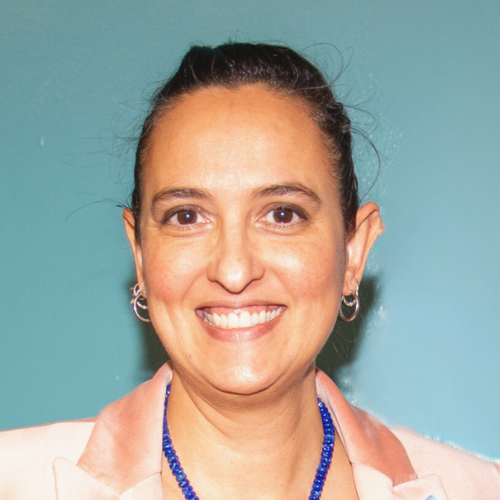Our Work
Our Approach
Invest
in promising leaders and ideas
We guide capital to the right places and the right people in ways that align with our values and evidence-informed perspective.
Amplify
solutions and success stories
We challenge limiting beliefs about whose expertise and perspective matters. Our research and insights illuminate what’s working in education.
Build
broader
and better coalitions
We use our unique position to bring together allies and unlikely partners who are committed to delivering better results for all students.




Venture Leaders Spotlight
Ana Fernanda Flores-Bolívar
Principal, La Promesa, Aldine ISD, Houston
Ruben Morris
CEO, Alabama Aerospace & Aviation High School
Monique Uzelac
Director, Washtenaw Alliance for Virtual Education
Our Investment Model
We are the first venture philanthropy focused on K-12 education. As a nonprofit and intermediary funder, we raise charitable donations and then grant those funds to early-stage entrepreneurs who are reimagining public education. While we have a rigorous investment process, we seek educational and social returns, not financial ones.
Step 1: We put out an open call to innovators.
Our funding opportunities are open to anyone with a bold, innovative idea. We publicize our application broadly, with the goal of having diverse applicants representing a range of backgrounds, geographies, and solutions.
Step 2: We screen applications in, not out.
We review submissions to identify the most promising candidates for further diligence. Our initial screen evaluates how well the idea and the team align with our investment strategy and our focus on innovation and equity.
Step 3: We take a deeper look.
During our diligence process, we evaluate teams against our full investment criteria. We conduct interviews, check references, and follow-up on open questions.
Our Commitment to Community Engagement
We work with students, parents, educators, and researchers to ensure our investments are inclusive and impactful. All first-time investments will be informed by community leaders.
Step 4: We fund and support innovators.
We select a portfolio of promising leaders and ideas. In addition to funding, our ventures receive management assistance and participate in communities of practice to strengthen their organizations and deepen their impact.
Step 5: We keep learning and improving.
We engage with applicants and funded ventures to understand and learn from their experiences. This helps us improve our approach and better meet the needs of innovators with the courage to share their ideas.
Our Strategy
We are embracing an optimistic outlook for the future of education. Although tomorrow’s challenges are uncertain, one thing is clear: a better future begins in our classrooms. Education fuels progress!

Our Approach to Diversity, Equity, and Inclusion
We leverage our unique position by acting on our commitment to diversity, equity and inclusion (DEI) every day — whether it’s in our internal practices and decisions or how we partner to advance the fields of education and philanthropy.